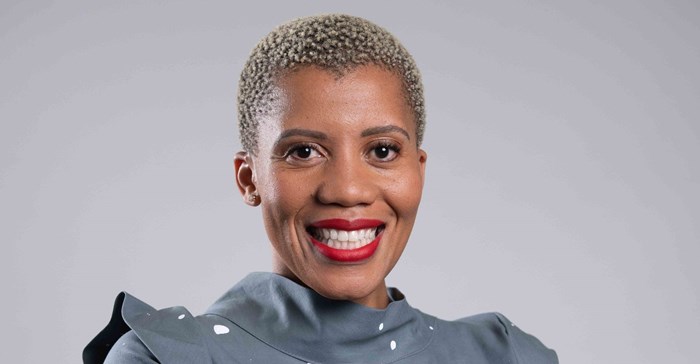
Top stories



ESG & Sustainability#BudgetSpeech2026: SRD grant unchanged, other Sassa social grants see hike
1 hour



More news




ESG & Sustainability
South Africa’s carbon tax should stay: climate scientists explain why
















Sanlam’s 42nd Benchmark report has found 63% of South Africans were anxious about their finances right now, with 87% saying they felt financial stress. For 58%, this was impacting their physical and/or mental wellbeing.
The lack of adequate savings suggests that concerns about the future are indeed valid. Alarmingly, one in five consumers believed they may never be able to retire at all. A further 42% said they felt a sense of insecurity or lack of control over their financial future.
According to Kanyisa Mkhize, chief executive officer of Sanlam Corporate, the biggest financial concerns for South Africans revolved around the fear of running out of money during retirement and the risk of facing unexpected financial challenges such as significant medical expenses without sufficient savings as a safety net.
“The findings reveal that one in five adults in South Africa did not have any form of medical-aid coverage, while 25% were not members of an employers' pension or provident fund, indicating a complete absence of retirement savings. These statistics are not entirely surprising, considering that 46% of respondents admitted to struggling to meet basic monthly needs like food and rent,” says Mkhize.
The insights were gathered through interviews with more than 500 full-time employed South Africans. These numbers underscored the urgent need for improved financial literacy, comprehensive savings plans, and adequate support systems to address the pressing financial challenges faced by a significant portion of the South African population.
In a departure from previous years, the 2023 Benchmark research took a consumer-centric approach. The goal? To gain insights into the state of South Africa in a post-Covid-19 world. Mkhize explains: “Our results suggest that people’s preoccupation with immediate financial priorities leaves them with little capacity or resources to save for the future.
“Shifting our focus to consumers, is key to understanding the challenges and realities faced by individuals in their financial journeys,” says Mkhize. The findings highlight the need to address these pressing concerns and explore strategies that can bridge the gap between short-term financial priorities and long-term savings goals.
Mkhize says, “By acknowledging the limitations posed by immediate financial priorities, we can align our efforts with the evolving needs of the South African population by designing solutions that strike a balance between meeting present needs and securing a stable financial future.”
Some of the key findings of the 42nd Sanlam Benchmark Report are:
In 2040, are we facing a South Africa where much of the population never retires. What does this mean in a nation where youth unemployment escalates every year?
The benchmark research revealed that, positively, 75% of respondents – taken from the sample of the 500 full-time employed people – contribute to some form of retirement fund, however, 25% do not.
There is a clear need for education and awareness campaigns to bridge this gap. It is worth noting that 30% of individuals were unsure about how much to save, 47% lacked clarity about which pension product to invest in, and 48% failed to include future medical-aid contributions in their financial planning.
Of the respondents 40% said that if they were to opt out of their retirement fund, it would be because their current financial needs are too large, and they need the money now. The goal of the proposed two-pot system, aimed at providing early access to retirement savings, is to address this. It is designed to strike a balance between long-term retirement savings goals while providing access for emergencies and life’s other unexpected events.
Findings showed a mix of sentiments around the proposed two-pot system for retirement funds. Surprisingly, 57% of respondents were sceptical, wary of the long-term impact on their retirement savings.
On the other hand, a total of 21% would consider withdrawing funds in an emergency, while 13% expressed a willingness to access a portion of their benefits. A small segment, 8%, said they probably would take advantage of this new system. Interestingly, a resolute 23% stated they wouldn't touch their savings at all.
Furthermore, 44% of respondents enjoyed employer-provided medical aid, highlighting the prevalence of health benefits as part of compensation packages in South Africa. However, the fact that 20% of respondents had no medical aid at all raises concern over the potential financial risks these individuals face in the event of health emergencies.
Notably, a substantial 62% of respondents were not contributing to a specific savings vehicle for post-retirement healthcare needs. Given that 40% cited the inability to afford necessary medical treatments or long-term care in old age as a significant financial worry, this points to a significant gap in retirement planning that needs to be addressed.
The 2023 report has underscored the critical need for long-term, holistic financial planning. While many South Africans equate financial confidence with a stress-free, debt-free retirement, the reality paints a stark contrast. High-stress and high-inflation conditions are causing anxiety and uncertainty, making it even more important to seek guidance from trusted advisers.
The industry also needs to reassess the traditional concept of retirement in the context of longer working and lifespans. Retirement planning isn't just about the financial aspect; it's about comprehensive well-being that includes prioritising healthcare as well.
Mkhize concludes, “Our annual benchmark research serves as a powerful tool to understand the nation's financial pulse, allowing us to strategically address financial needs, promote inclusivity, and bridge educational gaps. By understanding these dynamics, we can empower individuals to not just plan for retirement, but to live and retire with confidence.”